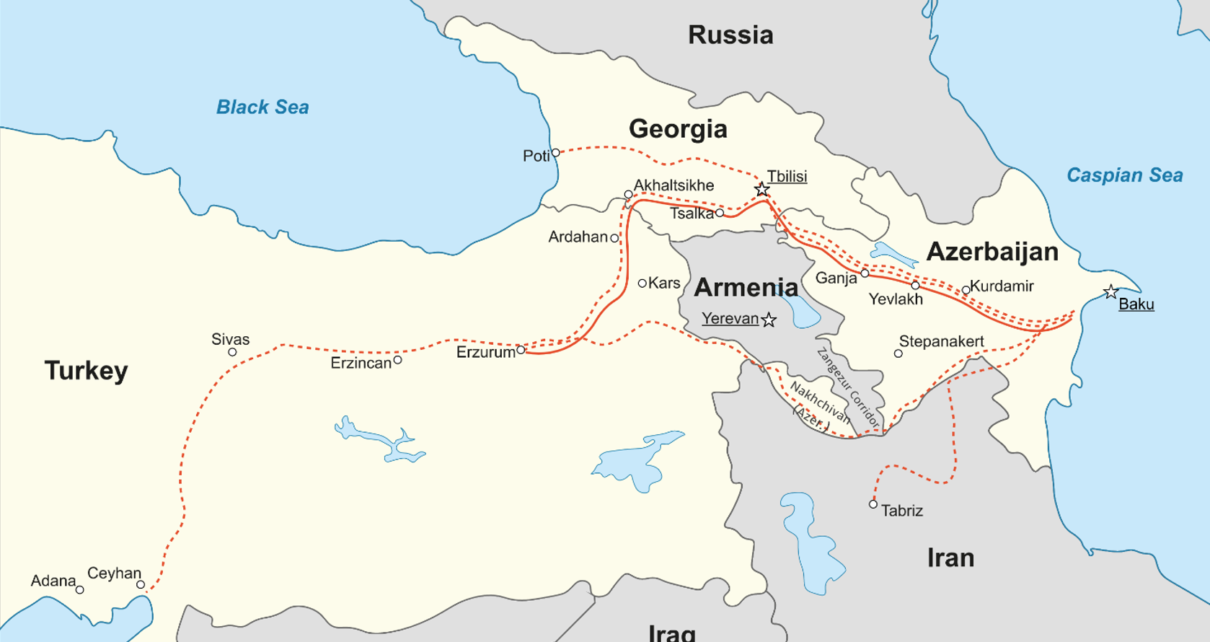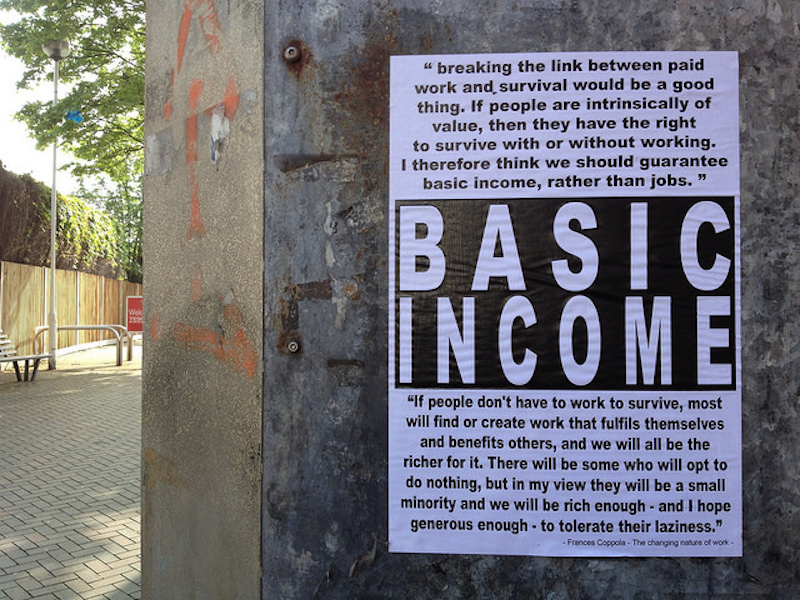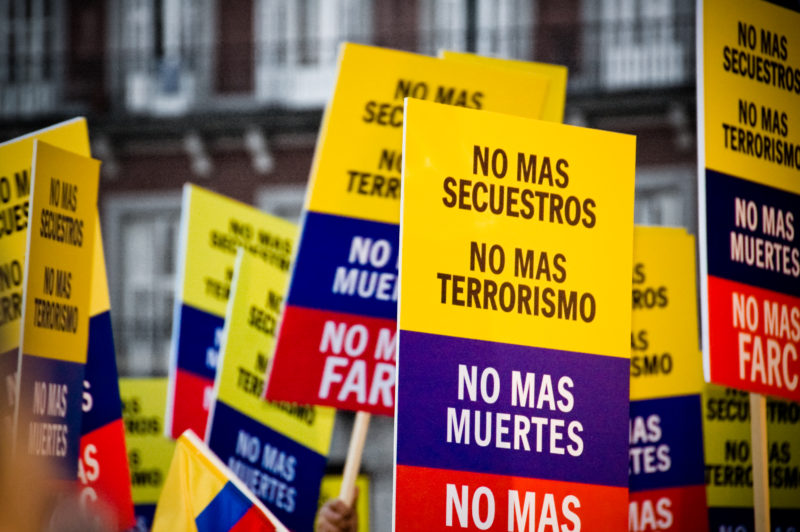Tensions in the South Caucasus are on the rise again, one year after the Nagorno-Karabakh War. This time, Iran and Azerbaijan are at odds as their diplomats conduct a war of words and their militaries flex their power near their fragile borders. With Turkey and Azerbaijan on one side against Iran, its administration under Ebrahim Raisi finds itself increasingly isolated in the region. But Tehran has recently found a convenient partnership with Armenia to navigate the political challenges the country faces. Other neighbouring countries have played a smaller role in the dispute; Georgia has timidly sided with Azerbaijan and Russia has taken on a more diplomatic role in the situation. Iran was alarmed by a joint drill between Azerbaijan, Turkey, and Pakistan held 250 km from its northwestern border. This prompted Tehran to host its own military games on October 1. Azerbaijan responded with a second drill with Turkey. Despite the region’s complex political dynamic, the dispute is primarily rooted in disagreements over trade relationships. Still, it can quickly grow into a pernicious conflict with cultural undertones given the volatile state of the area.
Cultural links between Iran and Azerbaijan complicate this diplomatic spat. The two Shia Muslim-majority nations share a long history bonded by successive Persian empires. Their common nationhood was ruptured by Russia’s victory in the Russo-Persian War of 1826 that separated Azerbaijan from Iran’s Qajar dynasty. That being said, Iran is still home to a sizeable Azeri minority, making up one-third of its population. As such, people in Iran’s northwest have a strong affinity for Azerbaijan, which may ignite separatist sentiments if the dispute is not handled deftly. On the other side, Turkey’s ethnic ties with Azerbaijan are becoming increasingly relevant to the dispute as well. The Turkish president, Recep Erdogan, has relied on Pan-Turkism (a political movement that aims to unify all Turkic peoples along cultural and political lines) to guide Turkey’s geostrategy. This was an important factor behind Turkey’s political and alleged military support for Baku in the Karabakh War. As a NATO member, Turkey’s involvement on behalf of Azerbaijan in a conflict against Iran has significant implications for the alliance. The potential involvement of neighbouring countries such as Russia and Georgia, the latter of which has expressed its desire for NATO membership, concerns Brussels.
Iran’s posturing arises from its claims that Azerbaijan is hosting Israeli forces within its borders. While President Aliyev has denied the presence of Israeli troops, he has indeed developed stronger ties with Israel since 2020. This relationship worries Iran, which views Israel as a regional rival and a threat to its own hegemony in the region. Armenia shares Iran’s discontent that Israel sourced much of Azerbaijan’s arms in the war last autumn. Indeed, as Azerbaijan accounted for 17% of Israel’s arms exports between 2011 and 2020, Tehran can conclude that economic revenue is but a secondary motive for Israel, a vocal critic of Iran’s nuclear program. However, Tehran’s concerns over an Israeli presence in the region may just be a pretext for hostilities stemming from deeper disagreements with Azerbaijan that have contributed to the dispute.
One of the underlying factors fuelling the breakdown in relations between Iran and Azerbaijan is Azerbaijan and Turkey’s plans for a transport corridor that hinders Iran’s regional trade and access to Armenia. Azerbaijan and Turkey have supported the proposed Zangezur Corridor that travels through Armenian territory to link the Nakhchivan exclave with the rest of Azerbaijan. The long-planned route is finally nearing approval. About 40% of cargo from Iran to Armenia is delivered through the main highway. Azerbaijani forces control part of the road and have recently cracked down on Iranian truckers, demanding customs duties and threatening arrests. Iran also worries that the corridor will give Azerbaijan economic independence. If Azerbaijan is no longer cut off from its Nakhchivan exclave, Iran will lose its existing political leverage over Baku. For many years, Azerbaijan’s main economic connection to Nakhchivan has been through Iran. Tehran has provided electricity and gas to the exclave, enjoying political influence over the region. The Zangezur Corridor could expedite prospective energy pipelines to bypass the need for Iran. Another one of Iran’s revenue sources that could be threatened comes from the 12,000 Turkish trucks that use its territory for passage to the Turkic republics. The corridor would act as Ankara’s gateway to the Caspian, providing direct access to the Central Asian states and China.
Armenia is equally worried about Turkey and Azerbaijan’s ambitions for Zangezur. The loss of its border crossing with Iran would effectively place Armenia in a landlock between its long-time rivals, Turkey and Azerbaijan, and neutral Georgia to the north. As such, Yerevan sides with Iran in opposition to their Turkic counterparts. Armenia’s foreign minister recently visited Tehran to discuss a new roadmap to expand their strategic relations. Iran’s deputy transport minister similarly visited Armenia to inspect a near-completed project that enables freight between the two countries to bypass Azerbaijan. Iran also showed interest in assisting the development of an alternative corridor that is currently in its planning and financing stages. This project would provide Iran unhindered access to the Caucasus.
In another concerning development in the area, since the rise of tensions in early October, people on both sides of the disputes have produced anti-Azeri and anti-Iranian rhetoric on social media. The leaders of the countries involved are desperate to gain public favour and they are betting that these negative portrayals of the “Other” will benefit their domestic popularity. With this cultural undertone, the conflict continues to harden stances. Azerbaijan closed the office of the Iranian supreme leader’s representative in Baku on October 5. The situation is highly volatile in a region where ethno-cultural divisions have already proven particularly dangerous and sanguinary. The Erdogan Administration’s interest in the South Caucasus may quickly surpass its involvement on all other fronts. While lacking a viable defence policy for the region, Iran’s response could have significant implications for the stability of an already strained part of the globe.
Disclaimer: Any views or opinions expressed in articles are solely those of the authors and do not necessarily represent the views of the NATO Association of Canada.
Photo: “Location of South Caucasus Pipeline” via Wikimedia (Charles) Licensed CC BY 4.0




